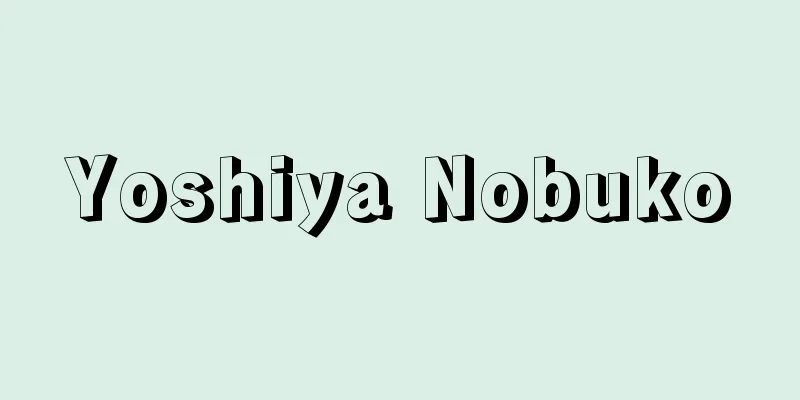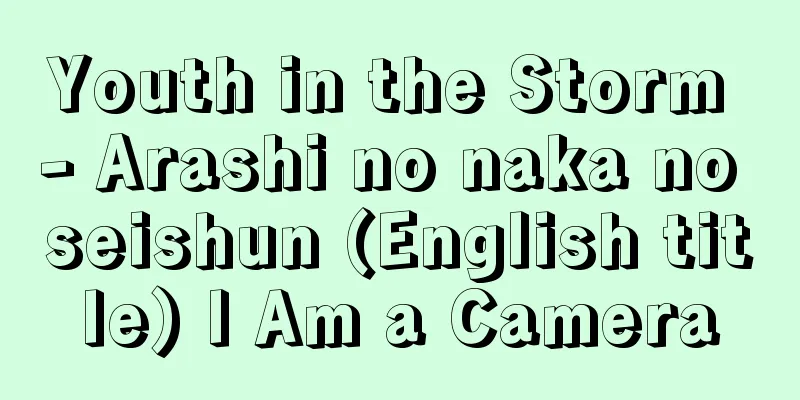Mikami Shrine

|
Located in Mikami, Yasu City, Shiga Prefecture. In the past, it was also called Mikami Daimyojin. A famous shrine in Omi since ancient times, it can be seen from all over the Omi Plains east of Lake Biwa, and is located at the western foot of Mt. Mikami, a beautiful mountain known as Omi Fuji, facing the Yasu River. It was founded when the ancestor of the Hafuri clan enshrined Ame-no-Mikage-no-Mikoto, who descended to the peak of Mt. Mikami during the reign of Emperor Korei, and it is said that the shrine was later moved to its current location and a shrine building was constructed. It is a Myojin Taisha shrine in the Engishiki and a former Kanpei Taisha shrine. The enshrined deity is revered as the ancestor of local development, and from the Middle Ages onwards, it was especially revered by samurai. Mt. Mikami is worshipped as a sacred mountain, and the ancient autumn festival on October 14th is called "Sōmoku" (a sumo ritual), in which the head priest worships and serves the shrine treasure, a sumo wrestler statue, and is also called the "Zuiki Festival," in which parishioners offer six mikoshi (portable shrines) made from potato stalks, flowers and fruit. The main hall is a national treasure, a representative example of Kamakura-era irimoya-style shrine architecture. The worship hall, tower gate, auxiliary shrine Wakamiya Shrine, and the treasured komainu (guardian lion dogs) are all important national cultural properties. [Mure Hitoshi] [Reference] |Main hall (national treasure). Yasu City, Shiga Prefecture © Lake Biwa Visitors Bureau, Public Interest Incorporated Association "> Mikami Shrine Source: Shogakukan Encyclopedia Nipponica About Encyclopedia Nipponica Information | Legend |
|
滋賀県野洲(やす)市三上(みかみ)に鎮座。古くは三上大明神とも称した。近江(おうみ)における古来からの名社で、琵琶(びわ)湖東近江平野の随所から望み見ることができ、近江富士の名のある秀麗な山容の三上山の西麓(せいろく)に、野洲川に臨んで位置している。創祀(そうし)は孝霊(こうれい)天皇のときに三上山の頂に降臨した天之御影命(あめのみかげのみこと)を御上祝(はふり)の祖が祀(まつ)ったのに始まり、のちに現社地に遷座して、社殿を造営したと伝えている。『延喜式(えんぎしき)』内の名神(みょうじん)大社で、旧官幣大社。祭神は地方開拓の祖神として崇敬され、中世以降は武家の崇敬がことに厚かった。三上山は神体山として信仰され、10月14日の秋季古例祭は「そうもく」(相撲(すもう)神事)といい、頭人(とうにん)が社宝の角力(すもう)像を奉斎して奉仕し、また「随喜祭(ずいきまつり)」ともいい、芋(いも)の茎や花・果実でつくった神輿(みこし)6基を氏子(うじこ)が献じる。本殿は鎌倉時代の入母屋(いりもや)造神社建築の代表例で国宝。拝殿、楼門、摂社若宮神社、宝物の狛犬(こまいぬ)は国の重要文化財。 [牟禮 仁] [参照項目] |本殿(国宝)。滋賀県野洲市©公益社団法人びわこビジターズビューロー"> 御上神社 出典 小学館 日本大百科全書(ニッポニカ)日本大百科全書(ニッポニカ)について 情報 | 凡例 |
>>: Mikami Otokichi - Mikami Otokichi
Recommend
Anglocaste - Anglocaste
…It was introduced in the Meiji era. In addition ...
Kappa roll - Kappa roll
… There are various types of sushi rolls, such as...
Futatsui [town] - Futatsui
A former town in Yamamoto County in northern Akita...
Echelette grating
A type of diffraction grating invented by R.W. Woo...
Siege of Vienna - Vienna siege
Ottoman troops marched against Vienna in the 16th ...
Iijima flatworm - Iijima flatworm
A small marine animal belonging to the phylum Pla...
Bundestag
...It is usually composed of elected representati...
Early cultivation - Soukisaibai
A cultivation method mainly seen in Japan's pa...
Biathlon - Biathlon (English spelling)
A sport that combines two events: free technique ...
Ibouminina - Ibouminina
...It is common in northern Japan. B. zonalis is ...
Airport surface detection device - Airport surface detection device
Airport surface detecting equipment (ASDE) is a sh...
Car rental - Shashaku
A transportation company that used oxcarts and wa...
Minamoto no Yorinobu
A military commander in the mid-Heian period. He ...
Ziwei Chudai - Ziwei Chudai
Ryoge no kan (official position outside the Imper...
Artillery ammunition - kahodanyaku
…The following mainly describes the narrowest def...









